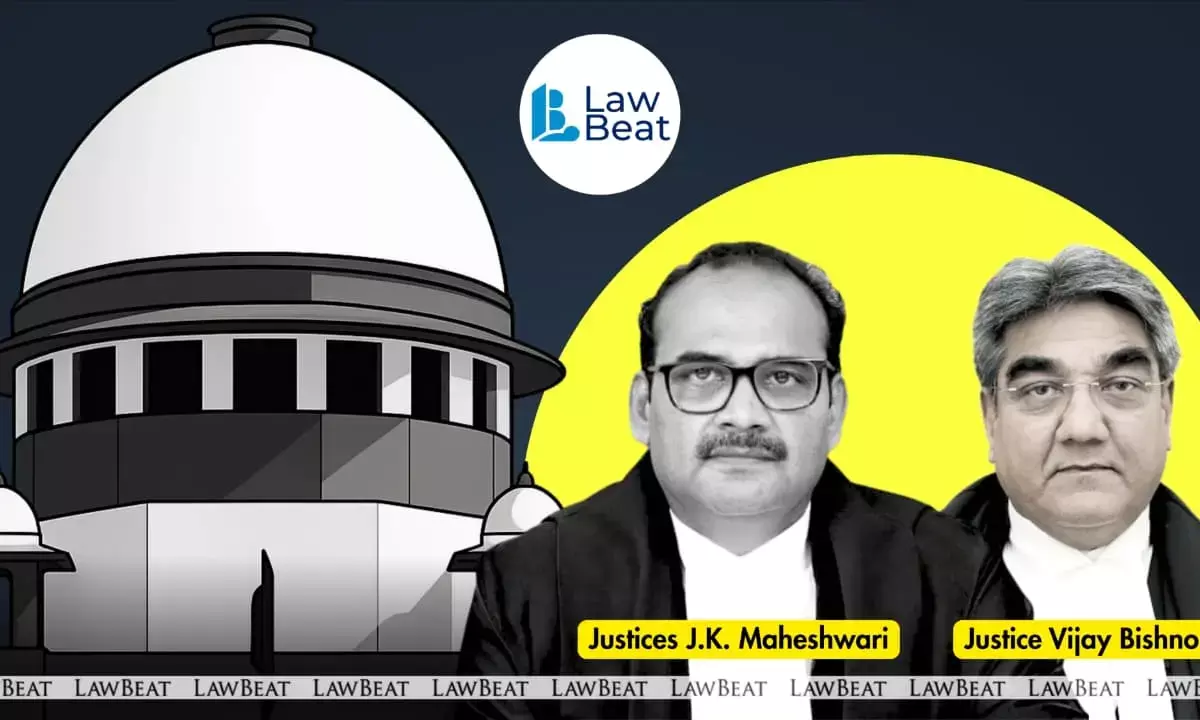SC Says High Courts Can’t Bypass Tribunals When Alternative Remedy Exists

The Supreme Court says High Courts should generally not entertain writ petitions when an alternative remedy is available with the tribunal
The Supreme Court on October 16, 2025, said that when an effective alternative remedy is available before a statutory tribunal, a high court should not entertain writ petitions under Article 226 of the Constitution.
Court was dealing with a bunch of appeals arising from the recruitment of 15,000 Graduate Primary Teachers in Karnataka, which had led to a protracted legal tussle over caste certificates submitted by married women candidates.
A bench of Justices J.K. Maheshwari and Vijay Bishnoi dismissed all appeals filed by aggrieved candidates and upheld the Karnataka High Court division bench’s order that had relegated the matter to the Karnataka State Administrative Tribunal (KSAT).
A notification was issued by the Department of Public Education on March 21, 2022. Following examinations in May 2022, a provisional selection list published on November 18, 2022 excluded several married women from the OBC category because they had submitted caste-cum-income certificates in the names of their fathers instead of their husbands. As a result, their names appeared under the general merit list, affecting their chances of selection.
These candidates challenged the list before the Karnataka High Court, arguing that a woman’s caste is determined by birth and parental status, not by marriage. On January 30, 2023, a single judge bench agreed, holding that the creamy layer status of a candidate must depend on her parents’ income and caste, not the husband’s. The court relied on the Supreme Court’s judgment in Surinder Singh v. Punjab State Electricity Board (2014) and quashed the provisional list, directing the State to treat the affected candidates as OBCs.
Following the decision, the government issued a new list on February 27, 2023, and a final list on March 8, 2023, which displaced 451 previously selected candidates. This prompted multiple appeals before a division bench, which on October 12, 2023, set aside the single judge’s decision, holding that such service-related matters fall within the jurisdiction of the KSAT, established under the Administrative Tribunals Act, 1985. The division bench also permitted the State to continue the recruitment process while leaving all contentions open before the tribunal.
When the matter reached the Supreme Court, it examined whether the high court had jurisdiction to entertain the petitions despite the availability of the tribunal remedy. Upholding the division bench’s view, the apex court ruled that recruitment disputes are not “extraordinary situations” warranting high court intervention. It cited the Constitution Bench judgment in L. Chandra Kumar v. Union of India (1997), which held that service tribunals function as the court of first instance in such cases, with the high court’s role limited to judicial review.
“The law is well settled that where an efficacious alternate remedy is available, the high court should not entertain a writ petition under Article 226,” the bench observed, adding that exceptions exist only in cases of violation of fundamental rights, lack of jurisdiction, or breach of natural justice, none of which applied in the present case.
The Supreme Court also clarified that candidates included only in the provisional select list had no vested right to appointment, rejecting their plea for revival of the earlier list. The interim orders issued during the litigation were made absolute, with the court directing that 500 reserved posts be filled as per the KSAT’s final decision. The tribunal has been asked to decide the matter within six months.
The bench also clarified that it had only dealt with the maintainability of the writ petitions and not examined the merits of the matter.
Case Title: Leelavathi N And Ors Vs The State of Karnataka And Ors Etc
Judgment Date: October 16, 2025
Bench: Justices J K Maheshwari and Vijay Bishnoi
